Saturday, July 22 2017
 July Round Robin topic: Whatever genre you write, do you have a different one that you love to read? What do you think attracts readers to certain genres? July Round Robin topic: Whatever genre you write, do you have a different one that you love to read? What do you think attracts readers to certain genres?
 Consensus opinion when I first started writing was to stick to one genre, at least until you were established. But then, I always did march to a different piper. The first book I wrote, currently abiding buried in a file folder somewhere on yellow lined paper, wasa regency romance – that was what I was mostly reading at the time. My next effort was mainstream and the one following that was a time travel. I’ve also written contemporary romance and historical romance and a few short stories that fit none of those genres. My published genres include mainstream – political intrigue, a Consensus opinion when I first started writing was to stick to one genre, at least until you were established. But then, I always did march to a different piper. The first book I wrote, currently abiding buried in a file folder somewhere on yellow lined paper, wasa regency romance – that was what I was mostly reading at the time. My next effort was mainstream and the one following that was a time travel. I’ve also written contemporary romance and historical romance and a few short stories that fit none of those genres. My published genres include mainstream – political intrigue, a 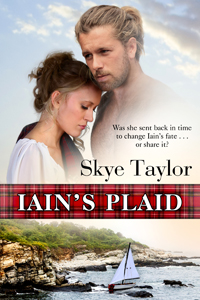 contemporary romance series and one historical time travel romance. I have a straight historical romance in progress and another more mainstream novel as well. contemporary romance series and one historical time travel romance. I have a straight historical romance in progress and another more mainstream novel as well.
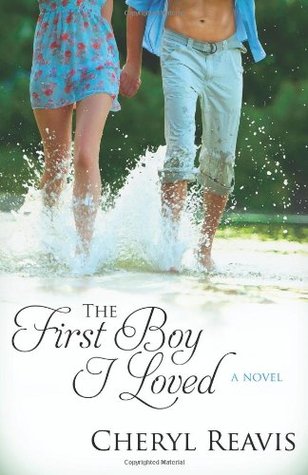 What genres do I read? I’m always a sucker for a good love story, but I’m kind of picky. I detest billionaires and models and I’m not into romances that are thinly veiled vehicles for sex. I’ve worn out any interest in innocent young heroines, but perhaps that’s my age showing. One of the most endearing romances I’ve read recently featured a heroine who was my age – a second chance at love long after she’d ever expected it. But my reading is far more eclectic than my writing. What genres do I read? I’m always a sucker for a good love story, but I’m kind of picky. I detest billionaires and models and I’m not into romances that are thinly veiled vehicles for sex. I’ve worn out any interest in innocent young heroines, but perhaps that’s my age showing. One of the most endearing romances I’ve read recently featured a heroine who was my age – a second chance at love long after she’d ever expected it. But my reading is far more eclectic than my writing.

I love a good suspense. I read lots of military and history, both non-fiction and fiction. I’m a huge MitchRapp and Jack Reacher fan and I follow the exploits of John Corey and Oliver Stone, by Nelson Demille and other similar action adventure series. I love following a series because once the author has made me fall in love with a hero/heroine, I want to see more of them. Another series I enjoyed was Men in Blue by W.E.B. Griffin, focused on the Philadelphia Police Department.
The third part of this month’s topic is: What attracts people to a particular genre? Everyone is different, living different lives, coming from different experiences and sometimes wishing for adventures they might never have personally, and for every wish, dream or yearning, there’s a genre.
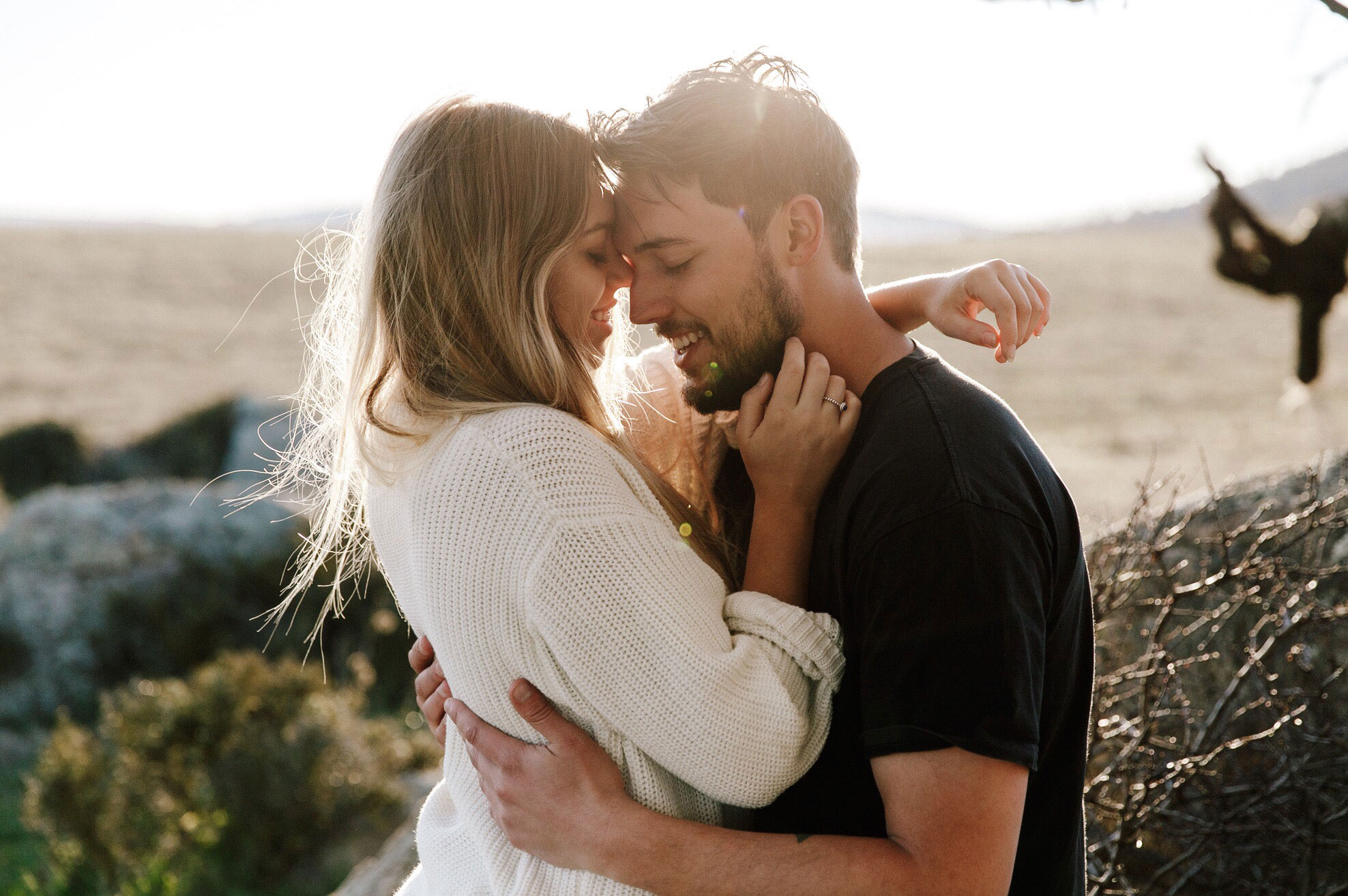
For people who love romance, both with their significant other and in the world around them, reading about a hero and heroine falling in love, overcoming the obstacles and finding their happyever after leaves a warm fuzzy feeling. Most of us will only fall in love once or twice in our lives, but reading romance lets you fall in love over and over again. And even here, there are dozens of subgenres to pick from: do you like firefighters? Cowboys? Highland warriors or modern military figures? Law Enforcement? Paranormal: witches and warlocks, vampires or werewolves. Some romance readers just want something sweet, some want spicy. Personally, I already know how Tab A fits into Slot B so I don’t want to read all the physical details – I just want the emotional roller coaster that goes with lovemaking.
 Action adventure gives even those of us who never even come close to being heroes a chance to admire those who are and share the adrenalin pumping action. And who doesn’t admire the dedication, drive and perseverance that it takes to become a Navy SEAL, Spec-ops, Pararescue or covert operators in all organizations. Perhaps sitting on the edge of your seat and biting your fingernails to nubs while the hero or heroine puts their life on the line for a higher cause fills a need for adventure even for those of us who work at a desk all day. Action adventure gives even those of us who never even come close to being heroes a chance to admire those who are and share the adrenalin pumping action. And who doesn’t admire the dedication, drive and perseverance that it takes to become a Navy SEAL, Spec-ops, Pararescue or covert operators in all organizations. Perhaps sitting on the edge of your seat and biting your fingernails to nubs while the hero or heroine puts their life on the line for a higher cause fills a need for adventure even for those of us who work at a desk all day.
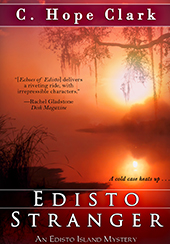 Some of us like puzzles, mysteries that challenge us to figure out who dun it. There are others who enjoy reading alternative histories. For instance, what if America had lost the Revolutionary War? Or what if Hitler had won his war? What if airplanes had never been invented. It makes for an interesting and thought provoking scenario. Then there’s fantasy or science fiction for those who’d like to imagine a very different world with fascinatingly different creatures. Some of us like puzzles, mysteries that challenge us to figure out who dun it. There are others who enjoy reading alternative histories. For instance, what if America had lost the Revolutionary War? Or what if Hitler had won his war? What if airplanes had never been invented. It makes for an interesting and thought provoking scenario. Then there’s fantasy or science fiction for those who’d like to imagine a very different world with fascinatingly different creatures.
 But to answer the question what draws people to different genres? What makes some folk love seafood while others prefer meat? What drives one man to become a Marine while another studies to become a heart doctor? Why does one person enjoy a Manhattan while someone else wants their whiskey straight up? Why does one person love the sea and another the mountains? Perhaps it’s how or where we grew up. Perhaps it’s what our parents revered, or perhaps it’s in rebellion. Perhaps it’s all about the things we covet or the things we treasure most. I don’t think it’s any one thing that draws a reader to one genre or another. It’s a combination of the things we enjoy, admire, covet, dream of or just want to experience between the pages of a book. But whatever you choose, READ ON. All the world is in a book. But to answer the question what draws people to different genres? What makes some folk love seafood while others prefer meat? What drives one man to become a Marine while another studies to become a heart doctor? Why does one person enjoy a Manhattan while someone else wants their whiskey straight up? Why does one person love the sea and another the mountains? Perhaps it’s how or where we grew up. Perhaps it’s what our parents revered, or perhaps it’s in rebellion. Perhaps it’s all about the things we covet or the things we treasure most. I don’t think it’s any one thing that draws a reader to one genre or another. It’s a combination of the things we enjoy, admire, covet, dream of or just want to experience between the pages of a book. But whatever you choose, READ ON. All the world is in a book.

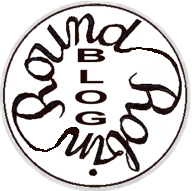 Be sure to check out what these authors write and read and why! Be sure to check out what these authors write and read and why!
A.J. Maguire
Anne de Gruchy
Heather Haven
Dr. Bob Rich
Helena Fairfax
Connie Vines
Rhobin Courtright
Fiona McGier
Kay Sisk
Rachel Kosinski
Saturday, June 24 2017
Our June Round Robin topic is: How do you go about developing your characters for a story? How much time do you spend or does it just happen in the writing process? What inspires it?
  Characters are more than a pretty face and a sexy body or a handsome, muscled man. Although physical traits certainly come to mind as a character comes to life, it’s the stuff below the surface that catches the imagination and fires the emotions. I recall reading Jeffrey Archer’s As The Crow Flies years ago at the same time my son was reading it. Although the hero of the story was a sympathetic character, the one that really stuck out was the villainess. We both marveled that the author had created a personality so compelling and complex that we hated her guts and wanted to strangle her. I still feel that way about her all these years later although I have not a clue what she looked like. Characters that are that compelling take time and effort to create. They don’t just happen. Finding the whole character is like peeling an onion - the deeper you go, the stronger it gets. Consider the movie When Harry Met Sally - On the surface, Sally is a pretty woman. But underneath she is what some men call "high maintenance"- she likes everything on the side. She's a romantic. She's a planner. Harry is an attractive guy with a wicked sense of humor. He's prosaic. He's afraid of commitments. He thinks men and women can't be friends because sex gets in the way. He's less disciplined and his life less structured. If you were the author of this story, you might ask why either of them was any of those things and the reasons would tell you even more about who they are. The deeper you dig into what makes a charcter tick, the more irresisible they become. Characters are more than a pretty face and a sexy body or a handsome, muscled man. Although physical traits certainly come to mind as a character comes to life, it’s the stuff below the surface that catches the imagination and fires the emotions. I recall reading Jeffrey Archer’s As The Crow Flies years ago at the same time my son was reading it. Although the hero of the story was a sympathetic character, the one that really stuck out was the villainess. We both marveled that the author had created a personality so compelling and complex that we hated her guts and wanted to strangle her. I still feel that way about her all these years later although I have not a clue what she looked like. Characters that are that compelling take time and effort to create. They don’t just happen. Finding the whole character is like peeling an onion - the deeper you go, the stronger it gets. Consider the movie When Harry Met Sally - On the surface, Sally is a pretty woman. But underneath she is what some men call "high maintenance"- she likes everything on the side. She's a romantic. She's a planner. Harry is an attractive guy with a wicked sense of humor. He's prosaic. He's afraid of commitments. He thinks men and women can't be friends because sex gets in the way. He's less disciplined and his life less structured. If you were the author of this story, you might ask why either of them was any of those things and the reasons would tell you even more about who they are. The deeper you dig into what makes a charcter tick, the more irresisible they become.
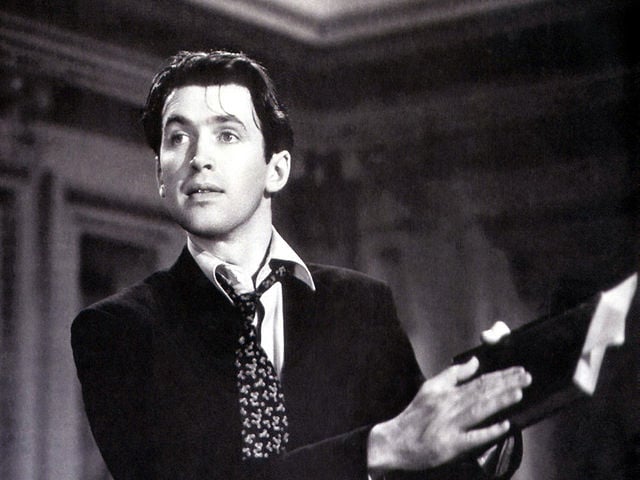 Perhaps because I’m a pantser and my stories are more character driven than plot driven, I spend quite a bit of time on character development before I even start the book. Although I’ll admit that my characters often surprise me as the story unfolds. Sometimes saying or doing something so unexpected that they catch even me off guard. But for the most part, I know my characters very well before I begin writing the book. Perhaps because I’m a pantser and my stories are more character driven than plot driven, I spend quite a bit of time on character development before I even start the book. Although I’ll admit that my characters often surprise me as the story unfolds. Sometimes saying or doing something so unexpected that they catch even me off guard. But for the most part, I know my characters very well before I begin writing the book.
 As I brainstorm my general plot and establish where I want to end up, I set aside time to write a detailed history for my main character or characters. Sometimes, if it’s important, I might even go back to their birth, but always at least to their teenage years. Because this document is never going to be seen by anyone but me, I just start typing, telling each of my main characters' stories as if I was describing a person I know well to someone else. I might ramble a bit and occasionally go back to something that might have happened to them earlier as it occurs to me, but by the time I have four or five single spaced pages, I know my character pretty well. I know them so well by now that if I put them in a situation, I know how they are going to react. The only time I skipped this step I realized as the story unfolded that the character was kind of bland and uninspiring. I was scrambling to fill in holes and figure out what he should be doing in every scene. I eventually had to stop writing and go back to fix him before I could complete the story. But knowing your character so well, you just know how they are going to react makes the writing so much easier. IN addition to the life story, I have a list of probing interview questions I ask my fictional characters. The answers are enlightening and if I don't know the answer, I need to dig a little deeper. As I brainstorm my general plot and establish where I want to end up, I set aside time to write a detailed history for my main character or characters. Sometimes, if it’s important, I might even go back to their birth, but always at least to their teenage years. Because this document is never going to be seen by anyone but me, I just start typing, telling each of my main characters' stories as if I was describing a person I know well to someone else. I might ramble a bit and occasionally go back to something that might have happened to them earlier as it occurs to me, but by the time I have four or five single spaced pages, I know my character pretty well. I know them so well by now that if I put them in a situation, I know how they are going to react. The only time I skipped this step I realized as the story unfolded that the character was kind of bland and uninspiring. I was scrambling to fill in holes and figure out what he should be doing in every scene. I eventually had to stop writing and go back to fix him before I could complete the story. But knowing your character so well, you just know how they are going to react makes the writing so much easier. IN addition to the life story, I have a list of probing interview questions I ask my fictional characters. The answers are enlightening and if I don't know the answer, I need to dig a little deeper.
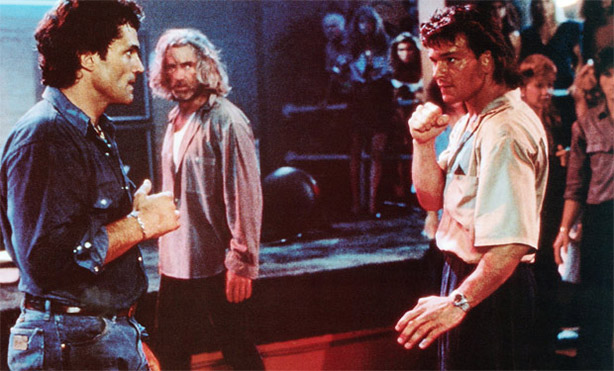 Knowing my character well helps me know how he fits into the action. For instance, if I’ve created a man who was a scrapper as a teenager, joined the Marines at 18 and drives race cars for sport, I’m pretty sure this guy is a total Alpha hero and if someone issues an insulting challenge in a bar he’s going to fight. On the other hand, I might have a hero who was a member of the debate team, got his undergrad and masters in social work and is currently a counselor, when I put him in the same bar and he’s confronted with the same insult, he’s more likely to try defusing the situation. But I don’t have to think about it, I just know how the two different personalities are going to react. But what if that beta hero had a sister who was raped by a sneering bully in a bar when she was in college? And what if the insult was to his girlfriend or wife? Maybe there would be no debate – his backstory would have him react very differently in spite of his beta personality. Knowing my character well helps me know how he fits into the action. For instance, if I’ve created a man who was a scrapper as a teenager, joined the Marines at 18 and drives race cars for sport, I’m pretty sure this guy is a total Alpha hero and if someone issues an insulting challenge in a bar he’s going to fight. On the other hand, I might have a hero who was a member of the debate team, got his undergrad and masters in social work and is currently a counselor, when I put him in the same bar and he’s confronted with the same insult, he’s more likely to try defusing the situation. But I don’t have to think about it, I just know how the two different personalities are going to react. But what if that beta hero had a sister who was raped by a sneering bully in a bar when she was in college? And what if the insult was to his girlfriend or wife? Maybe there would be no debate – his backstory would have him react very differently in spite of his beta personality.
 I also do a GMC (Goal-What do they want? Motivation – Why do they want it? Conflict – Why can’t they have it?) chart. If it’s a romance, I have two charts side by side on one page so I can compare how the hero’s goals might conflict with the heroine’s etc. Knowing what your characters want at every step keeps your story moving in the right direction and helps to avoid useless side trips and go-no-where chapters. I also do a GMC (Goal-What do they want? Motivation – Why do they want it? Conflict – Why can’t they have it?) chart. If it’s a romance, I have two charts side by side on one page so I can compare how the hero’s goals might conflict with the heroine’s etc. Knowing what your characters want at every step keeps your story moving in the right direction and helps to avoid useless side trips and go-no-where chapters.
 Some of the tools I use to begin shaping my character include a birth order chart. Although birth order has much deviation and exceptions, there are a number of interesting character traits that can be influenced by birth order. And it’s a place to begin. Is your character a first born? Or only child? Then maybe he or she is a bit of a perfectionist and he or she will generally be a good leader, highly motivated and responsible. Second borns can be adaptable and independent and prefer compromise over conflict. They make good mediators. Last born kids are social, outgoing, manipulative and often spoiled. But it also depends on gender. A first born son with an older sister will be different than a second born, second son. If you’re into it, Zodiac signs might give you ideas about your character as well. Another way to find flaws and strengths in your characters is to give them a trauma from their growing up years. Take Some of the tools I use to begin shaping my character include a birth order chart. Although birth order has much deviation and exceptions, there are a number of interesting character traits that can be influenced by birth order. And it’s a place to begin. Is your character a first born? Or only child? Then maybe he or she is a bit of a perfectionist and he or she will generally be a good leader, highly motivated and responsible. Second borns can be adaptable and independent and prefer compromise over conflict. They make good mediators. Last born kids are social, outgoing, manipulative and often spoiled. But it also depends on gender. A first born son with an older sister will be different than a second born, second son. If you’re into it, Zodiac signs might give you ideas about your character as well. Another way to find flaws and strengths in your characters is to give them a trauma from their growing up years. Take  that last born, make him the only boy whose father dies when he’s only 11 years old, and suddenly he’s no longer so spoiled or carefree. He’s become the man of the family at a young age and that sense of responsibility will carry over into his adulthood. Another tool in my box is a book called Careers for Your Characters by Obstfeld and Neumann. If you already know what career your character will have, check out the traits that make a person good at that job, or bad if you want your character to struggle. If you have some idea of your character’s traits, this is a great way to figure out what his or her profession should be. that last born, make him the only boy whose father dies when he’s only 11 years old, and suddenly he’s no longer so spoiled or carefree. He’s become the man of the family at a young age and that sense of responsibility will carry over into his adulthood. Another tool in my box is a book called Careers for Your Characters by Obstfeld and Neumann. If you already know what career your character will have, check out the traits that make a person good at that job, or bad if you want your character to struggle. If you have some idea of your character’s traits, this is a great way to figure out what his or her profession should be.
 And there is always people-watching. Never waste time in a doctor's office, in line at the grocery store or waiting for your flight at the airport. This is a great opportunity to watch how people act. How they cope with fussy kids, or delays and waiting lines. How people interact, both with professional staff they deal with and with the family and friends around them. You can get a few hints about their personality from their actions, but don't forget there's a lot you can only wonder about. If there is a woman standing at the window weeping, is she crying because her boyfriend just left for college? Or is she waiting for her husband's casket to be taken off the plane? Is the man yelling at the counter clerk because his flight was canceled a boor, or is his daughter getting married several states away and now he won't get there in time? If a parent is short tempered with a child it might be that the child is a spoiled brat, or the mother is sick and off her game, or maybe both of them are struggling with a trauma you can't see. But people watching and wondering why is another great way to get ideas for your characters. And there is always people-watching. Never waste time in a doctor's office, in line at the grocery store or waiting for your flight at the airport. This is a great opportunity to watch how people act. How they cope with fussy kids, or delays and waiting lines. How people interact, both with professional staff they deal with and with the family and friends around them. You can get a few hints about their personality from their actions, but don't forget there's a lot you can only wonder about. If there is a woman standing at the window weeping, is she crying because her boyfriend just left for college? Or is she waiting for her husband's casket to be taken off the plane? Is the man yelling at the counter clerk because his flight was canceled a boor, or is his daughter getting married several states away and now he won't get there in time? If a parent is short tempered with a child it might be that the child is a spoiled brat, or the mother is sick and off her game, or maybe both of them are struggling with a trauma you can't see. But people watching and wondering why is another great way to get ideas for your characters.
 Sometimes you will find traits all fall together in a nice tidy package. Other times your character will be a little out of the box. In my current work in progress, I have a beta hero. An only child whose mom died when he was a kid. Yet he’s a cop. Most cops tend to have alpha personalities so this is somewhat of an anomaly. My guy is confident and good with people, but he’s also a good mediator – why? He grew up next door to a family of boys that he hung out with. He was in the middle of the pack in age and their mom took him under her wing when his mother died. So he has some traits of being only child and some of being a middle child due to his unusual situation growing up. And he’s a cop in a small town where everyone knows everyone and crime is low. He doesn’t have to be a gung-ho alpha personality to thrive and do well, but it’s good to know that about him before I start writing. Eventually he might find himself confronting that bully in the bar and he will have to act, perhaps in a way he would not normally react. In a book I just read recently there was a totally alpha hero. He was a star football player in high school, popular with the girls, confident, outgoing, a great leader. A first born son. And a Marine. All very heroic things, but what made that character really interesting was the emotional trauma he came home with after being downrange for four consecutive tours of duty in a war zone. Trauma that broke everything that had made him who he was before he went off to fight. He is a character the reader is weeping for even before they get past the first chapter. What makes that happen is the careful construction of who he was and is before the story even starts. Sometimes you will find traits all fall together in a nice tidy package. Other times your character will be a little out of the box. In my current work in progress, I have a beta hero. An only child whose mom died when he was a kid. Yet he’s a cop. Most cops tend to have alpha personalities so this is somewhat of an anomaly. My guy is confident and good with people, but he’s also a good mediator – why? He grew up next door to a family of boys that he hung out with. He was in the middle of the pack in age and their mom took him under her wing when his mother died. So he has some traits of being only child and some of being a middle child due to his unusual situation growing up. And he’s a cop in a small town where everyone knows everyone and crime is low. He doesn’t have to be a gung-ho alpha personality to thrive and do well, but it’s good to know that about him before I start writing. Eventually he might find himself confronting that bully in the bar and he will have to act, perhaps in a way he would not normally react. In a book I just read recently there was a totally alpha hero. He was a star football player in high school, popular with the girls, confident, outgoing, a great leader. A first born son. And a Marine. All very heroic things, but what made that character really interesting was the emotional trauma he came home with after being downrange for four consecutive tours of duty in a war zone. Trauma that broke everything that had made him who he was before he went off to fight. He is a character the reader is weeping for even before they get past the first chapter. What makes that happen is the careful construction of who he was and is before the story even starts.
 Once you’ve created strong characters the reader can relate to and care about, then it’s time to explore how this character is going to grow and develop as the story unfolds. What is called the character arc. Character arc is critical to making a story memorable and leaving an indelible picture of that character in the readers’ minds. Unless they’re Jack Reacher, characters have to confront their demons and grow emotionally to leave a lasting impression, all the while facing whatever mischief the author has thrown in their way as story arc. Back to that bar with the bully. If we have a Jack Reacher type guy, he’ll make the bully wish he’d chosen a more Once you’ve created strong characters the reader can relate to and care about, then it’s time to explore how this character is going to grow and develop as the story unfolds. What is called the character arc. Character arc is critical to making a story memorable and leaving an indelible picture of that character in the readers’ minds. Unless they’re Jack Reacher, characters have to confront their demons and grow emotionally to leave a lasting impression, all the while facing whatever mischief the author has thrown in their way as story arc. Back to that bar with the bully. If we have a Jack Reacher type guy, he’ll make the bully wish he’d chosen a more 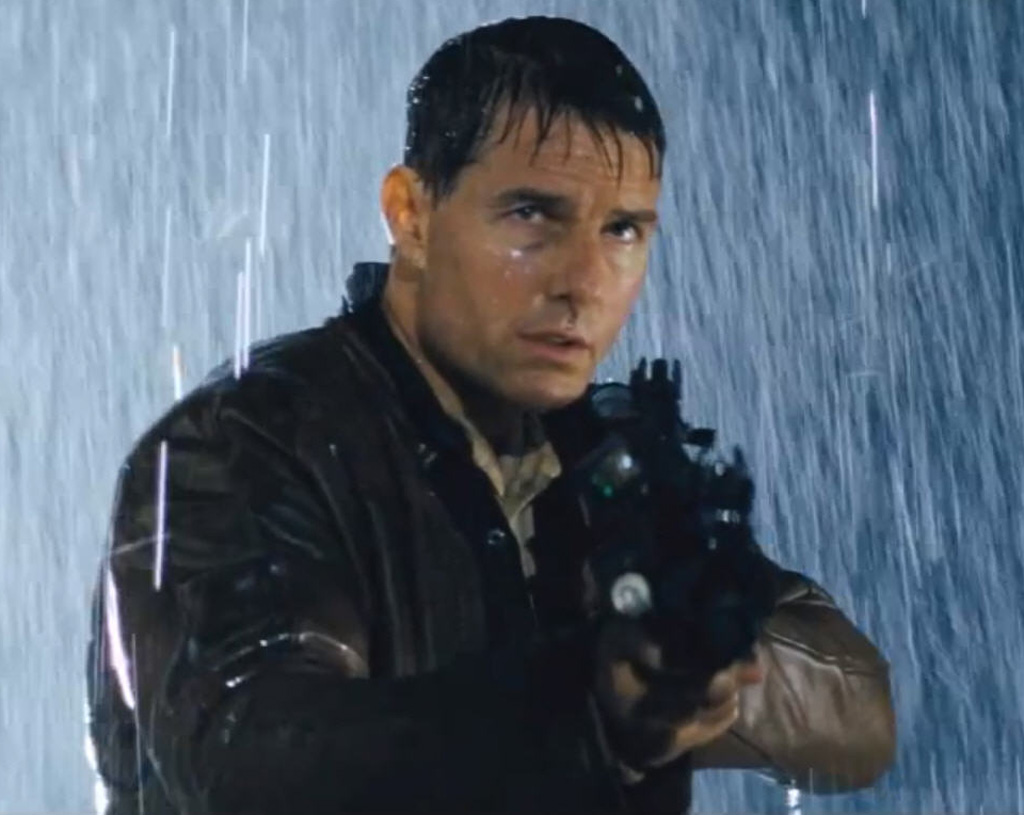 vulnerable target and barely raise a sweat. He definitely won’t think twice about it afterward. But how memorable is that interaction? But if your hero is suffering from PTSD and has flashbacks of violence and the toll it takes on the human psyche, he might be more mentally impacted even though he was easily able to summon the courage and strength to defend himself. And the debate team captain who never did anything physical in his life? He might have to dig deep for courage to stand up to the bully in the first place. He might know he’s totally outclassed and sure that he’s going to get hurt, but if he’s defending someone weaker than himself will he summon that courage? And if he does, and succeeds, think of the character growth he’ll experience. vulnerable target and barely raise a sweat. He definitely won’t think twice about it afterward. But how memorable is that interaction? But if your hero is suffering from PTSD and has flashbacks of violence and the toll it takes on the human psyche, he might be more mentally impacted even though he was easily able to summon the courage and strength to defend himself. And the debate team captain who never did anything physical in his life? He might have to dig deep for courage to stand up to the bully in the first place. He might know he’s totally outclassed and sure that he’s going to get hurt, but if he’s defending someone weaker than himself will he summon that courage? And if he does, and succeeds, think of the character growth he’ll experience.
 Then there are the walk-ons. You're the author and you already have a full cast of characters, well developed, sympathetic or antagonist, and the story is plotted out carefully, but every once in awhile a character will suddenly appear in a story and take on surprising strength. He or she won’t be the main character and they might have only a minor role, but they intrigue you, almost daring you to explore them more fully. Often these walk-ons turn into a follow-on book. They capture the author’s heart and imagination so completely their story just has to be told later. Often these characters appear because there was an unexpected need for a character to fill a role not explored while the story was being plotted. Sometimes they show up as a foil for another character. And while they might not have as much time and attention in development, the author does need to step back and consider the character and what he or she needs, wants or has experienced in the past that brought them on the scene in the first place. Then there are the walk-ons. You're the author and you already have a full cast of characters, well developed, sympathetic or antagonist, and the story is plotted out carefully, but every once in awhile a character will suddenly appear in a story and take on surprising strength. He or she won’t be the main character and they might have only a minor role, but they intrigue you, almost daring you to explore them more fully. Often these walk-ons turn into a follow-on book. They capture the author’s heart and imagination so completely their story just has to be told later. Often these characters appear because there was an unexpected need for a character to fill a role not explored while the story was being plotted. Sometimes they show up as a foil for another character. And while they might not have as much time and attention in development, the author does need to step back and consider the character and what he or she needs, wants or has experienced in the past that brought them on the scene in the first place.
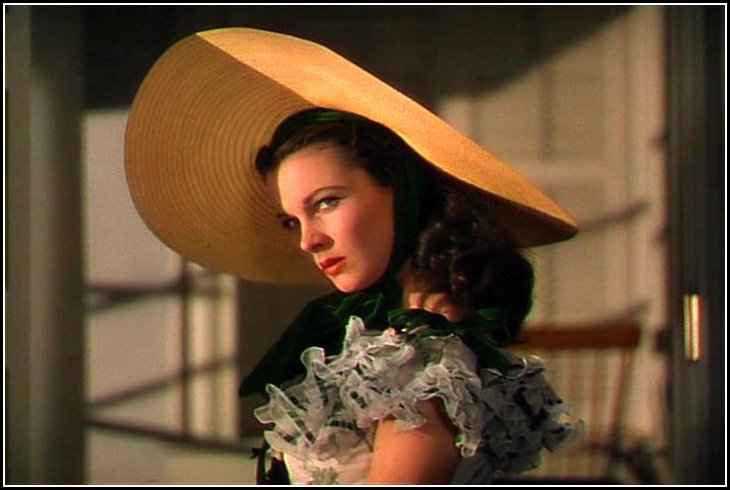  
Scarlette O'Hara Jamie Fraser Jay Gatsby
In my opinion character development is essential to making a great story that captivates readers. Above are three characters with personalties so clear and strong they enjoy enduring fame. Think of the characters in books you read long ago that are still vibrant and alive in your memory. None of them were two dimensional. All had detailed back stories and complicated personalities, loves, hates, desires, dreams, failures and triumphs. That’s what makes them memorable.
Check out how these authors create their characters:
 A.J. Maguire A.J. Maguire
Victoria Chatham
Marci Baun
Judith Copek
Rachael Kosinski
Diane Bator
Dr. Bob Rich
Beverley Bateman
Anne Stenhouse
Marie Laval
Rhobin Courtright
Connie Vines
Margaret Fieland
Fiona McGier
Tuesday, June 13 2017
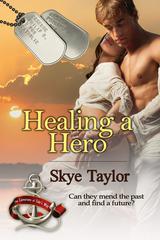 A great chance to pick up book #4 in the Camerons of Tide's Way series - it's on sale through June 15th for just $1.99 on all e-book platforms. A great chance to pick up book #4 in the Camerons of Tide's Way series - it's on sale through June 15th for just $1.99 on all e-book platforms.
Philip Cameron is a career Marine. He's had his share of losses both physically and emotionally, but the Marines has always been there to give him balance and a sense of purpose. Except now he's been sidelined by injuries that could even end his career . . . unless the new therapist they are sending him to can work a miracle. Imagine his shock when he walks into her therapy room and discovers she's the woman who broke his heart fourteen years ago and crushed all his hopes of having a family of his own. How on earth is he going to get through the next few months as if none of that ever happened?
    
To read excerpts from Healing a Hero, click here
Tuesday, June 06 2017
 My newest book and first historical romance has just been released on all e-book platforms. It’s a time travel romance, set during the beginnings of the American War for Independence and several people along the way to getting it published have asked me what inspired me to write this particular book. So here’s the answer to that query. My newest book and first historical romance has just been released on all e-book platforms. It’s a time travel romance, set during the beginnings of the American War for Independence and several people along the way to getting it published have asked me what inspired me to write this particular book. So here’s the answer to that query.
Back when I lived on the Maine coast, I came across a book by Bill Caldwell, The Islands of Maine, Where America Really Began. It was a fascinating book about the earliest European settlers in New England. From my front yard I could see one of those islands mentioned in Mr. Caldwell’s book. Historian Charles K. Bolton also wrote of this island in his book, The Real Founders of New England, noting that four hundred years ago, “Here was the chief maritime port of New England. Here was the rendezvous for English, French and Dutch ships crossing the Atlantic. Here men bartered with one another and with Indians, drank, gambled, quarreled and sold indentured servants.” Four hundred of years ago, two hundred years before the Pilgrims arrived in Plymouth on the Mayflower there were “wharves, salting houses (for fish) sheds, boatyards, taverns and perhaps a bawdy house or two for sailors coming ashore after a long Atlantic Crossing” clustered on this tiny island called Damariscove.
Edward Winslow, the Pilgrim representative who came begging for supplies in 1622, wrote in his journal that he and his group were graciously welcomed with “Kind entertainment and good respect and a willingness to supply our needs . . . and that there were 30 ships of sail anchored in the harbor.” Damariscove Island is only two miles long and not more than a quarter mile wide, yet, in 1675 three hundred refugees fleeing Indian wrath sheltered here. A century later, just before the start of the Revolutionary War a British Naval captain put ashore here and stole 75 sheep to feed his sailors before turning south to burn present day Portland to the ground.
 During the war of 1812 (the Second War of Independence) the HMS Boxer and the USS Enterprise fought a famous sea battle so close to the island that the inhabitants of Damariscove watched the fight from their own shore. (Just another bit of interesting history, the captain of HMS Boxer, Samuel Blyth who was just 29 years old, and the American Lieutenant William Burrows age 28 who captained the USS Enterprise were both killed in the battle and were buried side by side in a cemetery in Portland, Maine with full military honors.) During the war of 1812 (the Second War of Independence) the HMS Boxer and the USS Enterprise fought a famous sea battle so close to the island that the inhabitants of Damariscove watched the fight from their own shore. (Just another bit of interesting history, the captain of HMS Boxer, Samuel Blyth who was just 29 years old, and the American Lieutenant William Burrows age 28 who captained the USS Enterprise were both killed in the battle and were buried side by side in a cemetery in Portland, Maine with full military honors.)
Is it any wonder that I was fascinated with this scrap of land I could see from my front yard? So one day, my dad, my daughter and I sailed out to Damariscove one glorious summer day to explore. As I stood gazing down at the narrow harbor Winslow’s words came back to me, and I marveled that 30 sailing ships big enough to cross the Atlantic could have fit in that long gut of bright blue water. There were, just as Bill Caldwell had described, many old granite foundations scattered on the high ground above the harbor and as I stood on the cornerstone of one of the largest foundations, I tried to imagine this island full of people and what life might have been like here in an era when brave young captains ventured forth to harass the British Navy or carry ships filled with salted cod and furs across the Atlantic to Europe. There were tales of a ghost who roamed the island with his faithful dog, but of course there was no sign of him. Or any of the other souls who had called this place home for hundreds of years.
 Then the rock beneath my feet wobbled. I jumped back alarmed, not wanting to tumble into the long abandoned cellar hole. But as I watched a small shower of loose gravel and dirt tumble into the daisy-lined hole the seemingly random thought came to me, “What if I fell in, hit my head and was knocked unconscious, but when I came to my senses again there were sturdy floor joists over my head and a door enclosing me in a basement filled with the sorts of things kept in basements a long time ago?” As we climbed back in our dinghy and headed back to the sailboat, that question continued to rattle around in my head and that was the beginning of my story, Iain’s Plaid. I hope you enjoy reading it as much as I enjoyed imagining it and committing that tale to paper. Then the rock beneath my feet wobbled. I jumped back alarmed, not wanting to tumble into the long abandoned cellar hole. But as I watched a small shower of loose gravel and dirt tumble into the daisy-lined hole the seemingly random thought came to me, “What if I fell in, hit my head and was knocked unconscious, but when I came to my senses again there were sturdy floor joists over my head and a door enclosing me in a basement filled with the sorts of things kept in basements a long time ago?” As we climbed back in our dinghy and headed back to the sailboat, that question continued to rattle around in my head and that was the beginning of my story, Iain’s Plaid. I hope you enjoy reading it as much as I enjoyed imagining it and committing that tale to paper.
Available at: Amazon, B&N, Kobo, Google, iBooks
To get a sneak peak - here's an excerpt from Iain's Plaid
Saturday, May 27 2017
 May’s Round Robin topic is: Has so much emphasis been placed by readers and writers groups, publishers, reviewers, etc. on authors to have a spectacular opening page/chapter that the rest of the story gets left behind? What are your thoughts and experiences with this? May’s Round Robin topic is: Has so much emphasis been placed by readers and writers groups, publishers, reviewers, etc. on authors to have a spectacular opening page/chapter that the rest of the story gets left behind? What are your thoughts and experiences with this?
We live in a world of sound bytes. We are bombarded daily with 60 second attention grabs, 30 second blurbs, even 15 second demands for our attention. Even good grammar has been abandoned in the name of quick, easy and attention getting when it comes to texting and other forms of communication. At the same time, our lives become more hectic and demanding. Remember the days when finding a hand written letter in the mailbox filled you with a wonderful feeling of anticipation? Almost no one writes letters by hand any more, or even types them. And far too few even bother to write notes to say thank you and let someone know how much their thought or gift or time mattered to us. We’ve grown to rely on email and texting or facebook and other social media for all our interaction with others not done face to face, and the geniuses who create our gadgets find ever more ways to make sure we are never OUT of touch. Even good old fashioned pick up the phone and call a friend to  chat has given way to a text full of abbreviations and text jargon. chat has given way to a text full of abbreviations and text jargon.
This need to grab instant attention has moved into our writing as well. With thousands of books being produced every day, every  one of them is clamoring for your attention and you have only so much time to read blurbs and make a choice. So is it any wonder that so much emphasis is placed on getting into the action IMMEDIATELY? The "HOOK?" We want our readers’ hearts pounding and their fingers twitching to turn the page before they’ve even finished the first paragraph, or better yet, the first sentence. one of them is clamoring for your attention and you have only so much time to read blurbs and make a choice. So is it any wonder that so much emphasis is placed on getting into the action IMMEDIATELY? The "HOOK?" We want our readers’ hearts pounding and their fingers twitching to turn the page before they’ve even finished the first paragraph, or better yet, the first sentence.
I’ve been to the workshops. I’ve heard all the persuasive arguments. My first book to be published begins with: 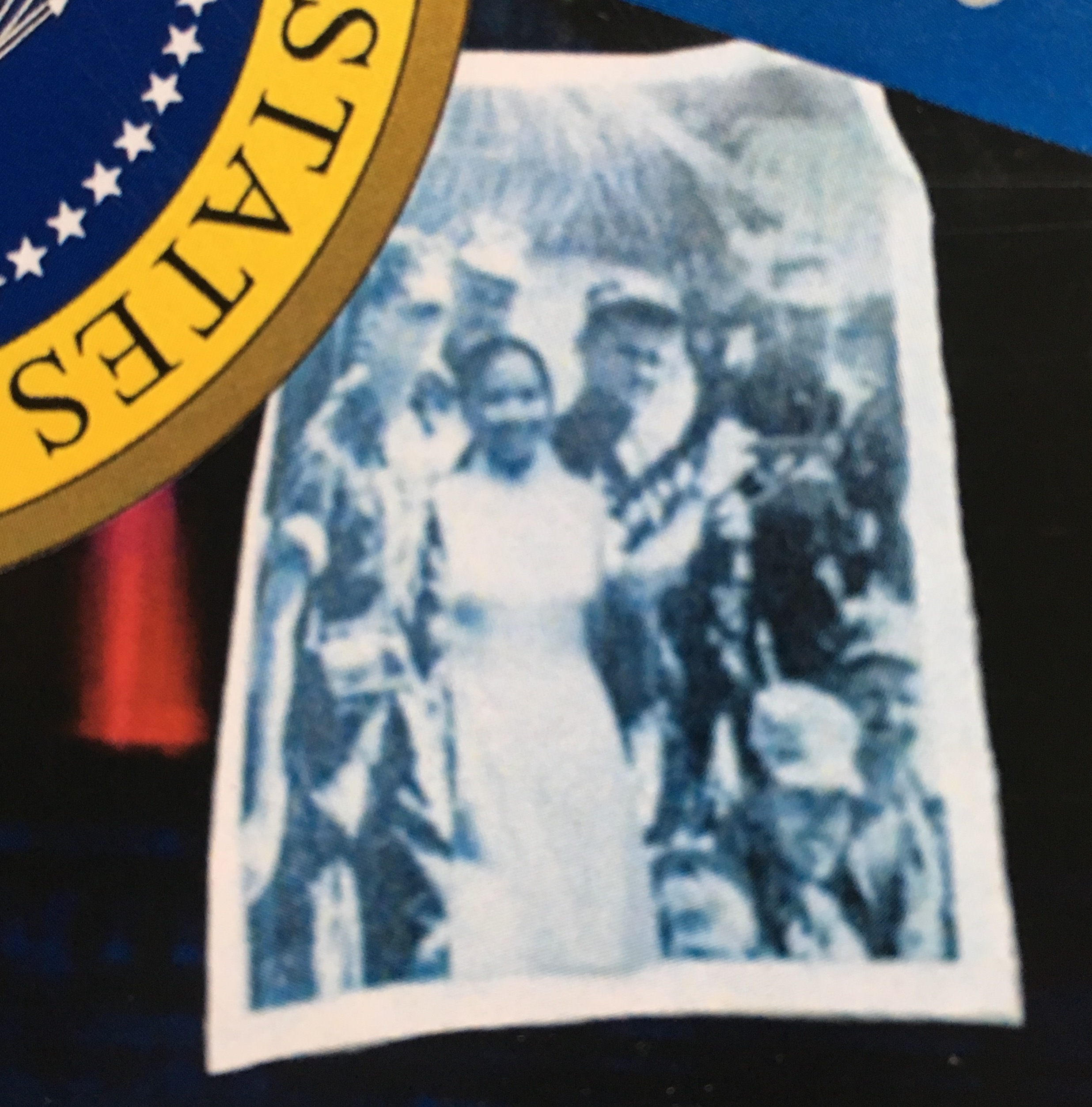 “He gaped at the tattered photograph that had just been slipped into his hand. His heart raced, and Senator Matt Steele, Democratic candidate for president, halted so abruptly his Secret Service agent bumped into him.” I was following the prescription, doing my best to grab the reader’s attention and throw them into the fray from the very first words. But no one has any idea where Matt Steele is, who he is, what he believes in, what he stands for. All we know here is that someone gave him a photograph that has caused some kind of alarm. I’m hoping, of course, that whoever picked that book up and opened it to the first page is going to be so instantly drawn into the story that they will buy my book. “He gaped at the tattered photograph that had just been slipped into his hand. His heart raced, and Senator Matt Steele, Democratic candidate for president, halted so abruptly his Secret Service agent bumped into him.” I was following the prescription, doing my best to grab the reader’s attention and throw them into the fray from the very first words. But no one has any idea where Matt Steele is, who he is, what he believes in, what he stands for. All we know here is that someone gave him a photograph that has caused some kind of alarm. I’m hoping, of course, that whoever picked that book up and opened it to the first page is going to be so instantly drawn into the story that they will buy my book.
But now think back to some of the best books you ever read that were published say 50 years ago or more. The ones that have stayed strong in your memory and probably still reside on your bookshelf. Did they begin with a bang, throwing you, the reader, and the protagonist into harm’s way in the first paragraph? Not so much.
 One of my all time favorite novels, High Tide at Noon was first published before I was even born. The copy on my shelf has frail pages that I turn reverently and every time I am drawn back into that world. It begins like this: One of my all time favorite novels, High Tide at Noon was first published before I was even born. The copy on my shelf has frail pages that I turn reverently and every time I am drawn back into that world. It begins like this:
“The Island lay very still under the clear golden light of a mid-summer noon. The whole world was bathed in a windless silence, steeped in warmth. Yet the air, alive with a peculiar clarity, had a sparkling edge.
Here in the great bay the sea held a blue that shook the heart, but the sky laid hold on you in a different way. The islands rose from one blueness and touched another, and in the glowing light they shone white and creamy and tawny and red, crested darkly with spruce. On the farthest northern horizon the mountains billowed along the sky in richly tender curves, grape-blue with distance. It was a day to drink like wine, and feel its intoxication seep through your heart and soul.
The dragger was incongruously dingy and loud in all this brilliant silence. Bound for fertile grounds far to the east, if had swerved from its course to enter the harbor. It was such a quiet harbor that when the engine stopped, and the boat slid noiselessly toward the wharf, the silence beat against the woman’s eardrums. Or was it her heart that hammered so?”
(Copyright: Elizabeth Ogilvie 1944)
I wonder if that book would make it past the acquiring editor’s desk today. But think of the picture it paints. The reader can close their eyes and “feel” like they are there in this place and time. If they have been there, they recognize it instantly. If it’s a place they’ve never been they can begin to imagine it before the action starts. Before the protagonist wonders if the pulsing feeling is all around her or inside her.
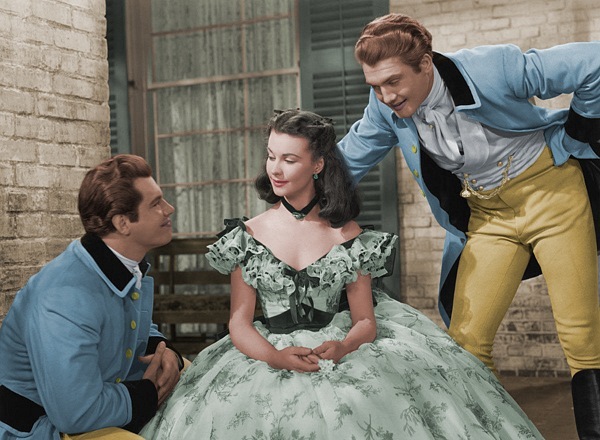 The same might be said of the opening to Gone With the Wind – where we are treated to an entire chapter being introduced to Scarlett sitting on a porch with two handsome rascals and getting a feel for their world, the era and the ambiance before we discover at the beginning of chapter two that Scarlett is devastated by the news that Ashley is marrying someone else. Even when that book first came out in 1936 our world was far removed from the world of Scarlett O’Hara, but in that first chapter we are introduced to her world, her life and her experience, the ambiance of Tara and the old south and even the hint of war on the horizon. Would we want it any other way? The same might be said of the opening to Gone With the Wind – where we are treated to an entire chapter being introduced to Scarlett sitting on a porch with two handsome rascals and getting a feel for their world, the era and the ambiance before we discover at the beginning of chapter two that Scarlett is devastated by the news that Ashley is marrying someone else. Even when that book first came out in 1936 our world was far removed from the world of Scarlett O’Hara, but in that first chapter we are introduced to her world, her life and her experience, the ambiance of Tara and the old south and even the hint of war on the horizon. Would we want it any other way?
A lot of the books I enjoy are action adventure and involve men and women who are skilled in worlds I will never begin to know. The more I read, the more I become familiar with the tactics, the weapons, the ways of communicating, electronically, in dialog and by hand signals, the terrain of far away places, and the grueling training they are subjected to before they end up on these types of teams. But that feel for their world is gained not just through the book I’m currently reading, but all those I read before it. I wonder if I would have come to an appreciation for the lives and dedication of these men and women sooner had the first book I read begun more like Gone With the Wind with an introduction to their world of dedication and hard charging daring do? Maybe not, I am living in a world of sound bytes like everyone else, but who knows.
 So, is there a happy medium between throwing the reader’s heart into overdrive in the first paragraph and taking an entire chapter to introduce them to a world they’ve never been in before? My current editor thinks there is. When I submitted my book Iain’s Plaid (Due out on June 2nd) to her she asked me to consider writing a prologue. I’d been so intent on that heart-pounding start, putting my heroine into harm’s way on that first page that I’d left the introduction to her world to be filtered in later on, bit by bit. Since I am traditionally published, I wrote that prologue for my editor and she was pleased. And now that it’s part of the book, I like it, too. I like that my reader knows what makes my heroine tick before I throw her under the bus, so to speak. My reader knows right from the beginning why she’s come to this unusual place where the tale begins and what she hopes to find. So, is there a happy medium between throwing the reader’s heart into overdrive in the first paragraph and taking an entire chapter to introduce them to a world they’ve never been in before? My current editor thinks there is. When I submitted my book Iain’s Plaid (Due out on June 2nd) to her she asked me to consider writing a prologue. I’d been so intent on that heart-pounding start, putting my heroine into harm’s way on that first page that I’d left the introduction to her world to be filtered in later on, bit by bit. Since I am traditionally published, I wrote that prologue for my editor and she was pleased. And now that it’s part of the book, I like it, too. I like that my reader knows what makes my heroine tick before I throw her under the bus, so to speak. My reader knows right from the beginning why she’s come to this unusual place where the tale begins and what she hopes to find.
I don’t really have an answer to this question. But I will offer this: If a tale is well written, and the characters compelling, the story will captivate the reader however it begins. So, my advice to readers is to spend less time worrying about a hook in the first sentence and more time crafting a story that will stay in your readers heart and imagination long after they’ve put it down, because if they were captivated, they will tell others and that first sentence won’t be so all consumingly important.
But I'm just one author - check out what all these great authors have to say...
A.J. Maguire
Dr. Bob Rich
Anne Stenhouse
Helena Fairfax
Marci Baun
Victoria Chatham
Rachael Kosinski
Rhobin Courtright
Connie Vines
Beverly Bateman
Tuesday, May 09 2017
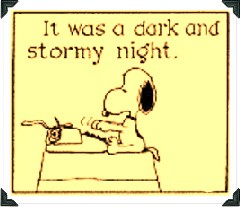 One of the things I most looked forward to when I retired was the freedom to write whenever I wanted to, or all day when the muse was with me. At one point in my working career, I’d been laid off during one of those slumps where so many lost their jobs, and I spend months haunting job fairs and unemployment offices. I made sure I had the requisite number of interviews to keep the unemployment checks coming, and send out many résumés each week, but mostly I wrote. It was the first chance I’d had to just dig in and write with no competing demands for my time. My husband had passed away and my youngest child was in college. Only my dog wanted my attention now and then. I completely immersed myself in my characters’ journeys. I lived, ate and breathed their lives and loves. From the moment I got out of bed in the morning until I got back in at night. Eventually I did land a job and it was back to the 9-5 rat race, dancing to someone else’s piper every day. Don’t get me wrong, I had a wonderful boss and an interesting job. But my day didn’t seem to give me much in the way of writing time. One of the things I most looked forward to when I retired was the freedom to write whenever I wanted to, or all day when the muse was with me. At one point in my working career, I’d been laid off during one of those slumps where so many lost their jobs, and I spend months haunting job fairs and unemployment offices. I made sure I had the requisite number of interviews to keep the unemployment checks coming, and send out many résumés each week, but mostly I wrote. It was the first chance I’d had to just dig in and write with no competing demands for my time. My husband had passed away and my youngest child was in college. Only my dog wanted my attention now and then. I completely immersed myself in my characters’ journeys. I lived, ate and breathed their lives and loves. From the moment I got out of bed in the morning until I got back in at night. Eventually I did land a job and it was back to the 9-5 rat race, dancing to someone else’s piper every day. Don’t get me wrong, I had a wonderful boss and an interesting job. But my day didn’t seem to give me much in the way of writing time.
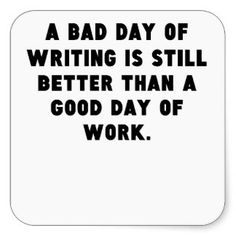 I’d get up early, eat breakfast, go for a walk, shower, dress and leave for work – my commute was about an hour long. Work 8 hours, sometimes a bit longer, grab a bite to eat in the middle and return home, another hour at the end of the day. My pooch, naturally wanted another walk and some playtime. He’d been alone all day while I was away. Even if I never turned the television on, it would be 8:00pm before I got to sit down at my computer. Then it would take another half hour to check email and respond. Then I’d open my manuscript and stare at the place I’d left off the night before. And stare. And stare. My mind a blank. So, I’d go back and read the last chapter written to get myself back into the story. Just when things started rolling, it would be time for bed. I had an alarm clock I’d be getting up to in just a few hours. I know lots of authors who do this every day, but it wasn’t working for me. I did get a couple novels written during this time, but it wasn’t the same lovely, all-consuming focus I’d had while I was laid off. Had I sold a best seller during that ten-month hiatus, I’d have had it made. Or so I told myself. That, of course, is a pipe dream. Rarely do writers hit it big enough on their first try to quit their day job. So, now my focus was on my retirement. I was getting close to that magic number. I just needed to hang on. I’d get up early, eat breakfast, go for a walk, shower, dress and leave for work – my commute was about an hour long. Work 8 hours, sometimes a bit longer, grab a bite to eat in the middle and return home, another hour at the end of the day. My pooch, naturally wanted another walk and some playtime. He’d been alone all day while I was away. Even if I never turned the television on, it would be 8:00pm before I got to sit down at my computer. Then it would take another half hour to check email and respond. Then I’d open my manuscript and stare at the place I’d left off the night before. And stare. And stare. My mind a blank. So, I’d go back and read the last chapter written to get myself back into the story. Just when things started rolling, it would be time for bed. I had an alarm clock I’d be getting up to in just a few hours. I know lots of authors who do this every day, but it wasn’t working for me. I did get a couple novels written during this time, but it wasn’t the same lovely, all-consuming focus I’d had while I was laid off. Had I sold a best seller during that ten-month hiatus, I’d have had it made. Or so I told myself. That, of course, is a pipe dream. Rarely do writers hit it big enough on their first try to quit their day job. So, now my focus was on my retirement. I was getting close to that magic number. I just needed to hang on.
And then the day came.
 But something else happened while I was waiting for the magic life of freedom to return. Social media, instant access to endless forms of tech stuff from games to research, photos of cute animals, political forums and pleas to support good causes, email, text messaging, smart phones (to keep you attached to this time consuming umbilical cord even when you are away from your desk) and so much more. Now I wake every morning with this song in my head that I have ALL DAY to write. I go about the needed tasks: walking the dog, starting a load of laundry, picking up a few things at the grocery store, mopping the floor, etc., with this urgent anticipation in my heart. TODAY I am going to write sooooo much. It’s going to be a great day. From time to time I glance at the clock so conveniently provided in the corner of my computer screen and I am always shocked by how late it is. My goodness! It’s almost lunchtime. Where did my morning go? Well, I might as well have lunch and walk the dog. Then I can sit down with my book and really get into it. But something else happened while I was waiting for the magic life of freedom to return. Social media, instant access to endless forms of tech stuff from games to research, photos of cute animals, political forums and pleas to support good causes, email, text messaging, smart phones (to keep you attached to this time consuming umbilical cord even when you are away from your desk) and so much more. Now I wake every morning with this song in my head that I have ALL DAY to write. I go about the needed tasks: walking the dog, starting a load of laundry, picking up a few things at the grocery store, mopping the floor, etc., with this urgent anticipation in my heart. TODAY I am going to write sooooo much. It’s going to be a great day. From time to time I glance at the clock so conveniently provided in the corner of my computer screen and I am always shocked by how late it is. My goodness! It’s almost lunchtime. Where did my morning go? Well, I might as well have lunch and walk the dog. Then I can sit down with my book and really get into it.
The other thing that has finally become clear to me is that those months of my hiatus from work when I lived in my current novel in progress (I wrote four 100,000 word books in ten months, albeit, rough drafts needing much editing) those months were a thing of the past. I sometimes wonder if I actually cut myself off from the internet and went on a sabbatical to the top of some mountain with no people or even my dog around to distract me, would I be able to find my way back to that time? But, of course, I’m not going into seclusion. Among other things, I did become a published author which means I have to spend a certain amount of my time promoting the books I already have out there, which means spending time interacting with my readers in one way or another.
 I’ve come to the conclusion that my best writing time, regardless of when I get up, or what the day includes, is from 4:00 to 8:00 pm. I’ve also gone back to wake my computer up at midnight or even later and write for another hour or two. I have always been a night owl and not a morning person so perhaps that makes sense. I’ve come to terms with it. I try not to be disappointed that so much of my promising day has gotten away from me before I finally get into my writing. I enjoy my characters and I thank them for sharing their lives with me whenever they find time. I enjoy my neighbors who wave when they pass by or stop to chat for a bit. I relish the time I spend on the beach with my dog and I love going out to lunch with fellow authors and comparing notes. So, maybe it’s not that wild and crazy ride I was on during the months I was laid off, but it’s a good life. I’ve got a new book coming out early next month and I’m in the revision stage for another with an urgent idea forming in my brain for two more. I’m blessed. I’ve come to the conclusion that my best writing time, regardless of when I get up, or what the day includes, is from 4:00 to 8:00 pm. I’ve also gone back to wake my computer up at midnight or even later and write for another hour or two. I have always been a night owl and not a morning person so perhaps that makes sense. I’ve come to terms with it. I try not to be disappointed that so much of my promising day has gotten away from me before I finally get into my writing. I enjoy my characters and I thank them for sharing their lives with me whenever they find time. I enjoy my neighbors who wave when they pass by or stop to chat for a bit. I relish the time I spend on the beach with my dog and I love going out to lunch with fellow authors and comparing notes. So, maybe it’s not that wild and crazy ride I was on during the months I was laid off, but it’s a good life. I’ve got a new book coming out early next month and I’m in the revision stage for another with an urgent idea forming in my brain for two more. I’m blessed.
Saturday, April 22 2017
 April Round Robin topic is suggested by Victoria Chatham: Reviews. Love 'em, hate 'em or totally ignore them. Amazon tells us the more 4 or 5 reviews the merrier, but how to get them? April Round Robin topic is suggested by Victoria Chatham: Reviews. Love 'em, hate 'em or totally ignore them. Amazon tells us the more 4 or 5 reviews the merrier, but how to get them?
To review or not to review – that is the question! I find it odd when another writer tells me they never read reviews. Really? I always read them. Maybe not ALL of them but I do read them for a lot of reasons.
 As a reader, I read reviews to get an idea if this is a book I really want to spend my time and money on. One thing that really irks me in this day of self publishing is authors who throw the book out there thinking grammar and spell check is good enough and fail to get the book properly edited. Maybe if I wasn’t a writer myself it wouldn’t bother me so much but a book full of misspellings and improper grammar drives me nuts and I can’t get past it. So a couple reviews that mention this problem is a definite NO for me to bother downloading. But other comments about the type of story, the depth of characters, or even just a description of characters might make up my mind for me. For instance, I love stories about military people, but hate stories about millionaires and beauty queens. I grabbed up a book on sale that happened to be set in the area I grew up in – just because I knew all the places and it sounded fun. Turned out to be a fantastic book and I can’t wait for the next one by this new author. As a reader, I read reviews to get an idea if this is a book I really want to spend my time and money on. One thing that really irks me in this day of self publishing is authors who throw the book out there thinking grammar and spell check is good enough and fail to get the book properly edited. Maybe if I wasn’t a writer myself it wouldn’t bother me so much but a book full of misspellings and improper grammar drives me nuts and I can’t get past it. So a couple reviews that mention this problem is a definite NO for me to bother downloading. But other comments about the type of story, the depth of characters, or even just a description of characters might make up my mind for me. For instance, I love stories about military people, but hate stories about millionaires and beauty queens. I grabbed up a book on sale that happened to be set in the area I grew up in – just because I knew all the places and it sounded fun. Turned out to be a fantastic book and I can’t wait for the next one by this new author.
 As an author, I read my own reviews. Partly because patting myself on the back requires uncomfortable contortions, but more because I learn from the reviews. If I let myself be open about the critical comments it can only help me grow as an author to avoid those pitfalls in my future books. Likewise, when reviewer after reviewer has the same or similar positive comments, I know what I’m getting right. I don’t write books for the benefit of critiquers and editors, but for my readers and reading my reviews helps me to know and understand what my readers liked and didn’t like and work harder to meet their expectations with each new book I write. As an author, I read my own reviews. Partly because patting myself on the back requires uncomfortable contortions, but more because I learn from the reviews. If I let myself be open about the critical comments it can only help me grow as an author to avoid those pitfalls in my future books. Likewise, when reviewer after reviewer has the same or similar positive comments, I know what I’m getting right. I don’t write books for the benefit of critiquers and editors, but for my readers and reading my reviews helps me to know and understand what my readers liked and didn’t like and work harder to meet their expectations with each new book I write.
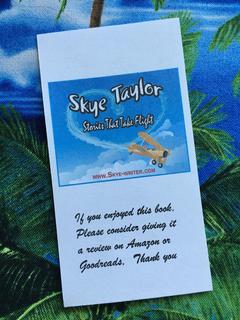
As for GETTING reviews – that’s the tough question. I’ve had readers who write me gushing emails telling me how much they loved my book, but when I ask for a review tell me they don’t know how to write one. I’ve been known to suggest they copy and past the email they just sent. I have four kids who love my stories, three of them daughters who read the kind of books I write anyway. But one of them says she just “doesn’t do reviews!” Not even for good old MOM! I’ve run contests offering a drawing from all the names who write me a review. I always ask for a review when someone tells me they loved my book. One other thing I did was to create a bookmarker with my logo on it and the comment that if they enjoyed this book please consider writing me a review. I put one in every print version of my book that I sell, both at book signings and in books on consignment at local bookstores. I slip them into books at B&N for the length of time my books show up on their shelves as well. But on the whole I find trying to get reviews is difficult. Now I’m going to check out all the other visits to this Round Robin blog to see what other ideas I can try.
 Marci Baun Marci Baun
Dr. Bob Rich
Beverley Bateman
Helena Fairfax
Rachael Kosinski
A.J. Maguire
Margaret Fieland
Connie Vines
Rhobin Courtright
Tuesday, April 11 2017

On Facebook for the past couple weeks, we’ve seen a mixture of spring images and unexpected snow. Daffodils blooming in spite of the chill, and trees everywhere beginning to bud. Spring is coming even when winter seems reluctant to leave. And this seems to be true of our lives as well. In some places and in some arenas people cling to the past. But the one thing we cannot do is hold time still. Accepting the changes that come with spring: warmer weather, sunshine, flowers, and a fresh new beginning in nature aught to help us to see that change is not always to be feared and avoided. One can’t step through a new door until one closes the one behind you.
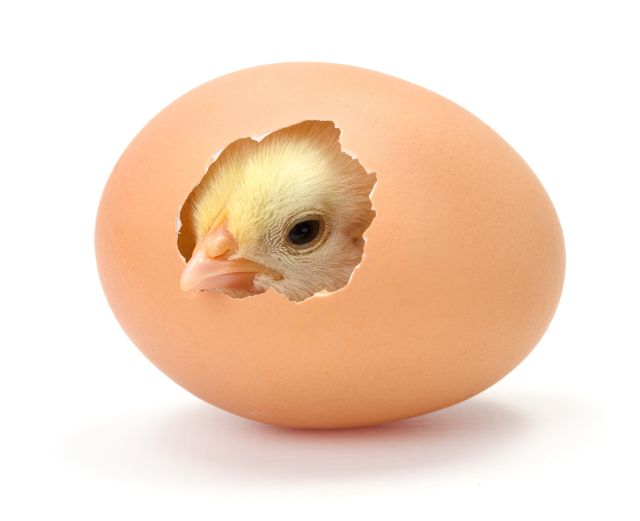 Think of all the new beginnings you’ve faced in your lives – some welcome, some joyous, some scary. That first day of kindergarten or nursery school – the day you had to let go of the familiarity of home and meet a whole classroom full of new faces and a new routine. Although my friends today would probably never have guessed it, I clung to my mother’s legs begging her not to leave me. But where would I have been in life, had she not gone and I had not begun my formal education? Leaving for college is another sometimes scary, sometimes eagerly anticipated event. Our first really foray into the world as adults was empowering even while it presented new chances to fail and get hurt. Getting married is nearly always a joyful event. We are in love and excited to become a new little family, leaving the shelter of the one we grew up in. But even here, there are new things to learn and overcome to make marriage and life a success. Every new job we’ve ever embarked on, however fervently sought, had its learning curve, brought its own new challenges and sometimes even failures before we took hold and made the position our own. Having a child changes everything about your life. Now you are totally responsible for another person, one helplessly relying on you for their survival, but once accepted and the challenges faced, parenthood can be one of the greatest achievements in life and bring the greatest of joy and love. Think of all the new beginnings you’ve faced in your lives – some welcome, some joyous, some scary. That first day of kindergarten or nursery school – the day you had to let go of the familiarity of home and meet a whole classroom full of new faces and a new routine. Although my friends today would probably never have guessed it, I clung to my mother’s legs begging her not to leave me. But where would I have been in life, had she not gone and I had not begun my formal education? Leaving for college is another sometimes scary, sometimes eagerly anticipated event. Our first really foray into the world as adults was empowering even while it presented new chances to fail and get hurt. Getting married is nearly always a joyful event. We are in love and excited to become a new little family, leaving the shelter of the one we grew up in. But even here, there are new things to learn and overcome to make marriage and life a success. Every new job we’ve ever embarked on, however fervently sought, had its learning curve, brought its own new challenges and sometimes even failures before we took hold and made the position our own. Having a child changes everything about your life. Now you are totally responsible for another person, one helplessly relying on you for their survival, but once accepted and the challenges faced, parenthood can be one of the greatest achievements in life and bring the greatest of joy and love.
 Just growing older doesn’t stop the inevitable changes that life can throw at us. Retirement, aging, failing bodies, loss of friends, loss of the ability to do the things we once did with ease are all changes that we must face. To cling to what cannot remain just keeps us from finding pleasure and joy in what we now have. Just growing older doesn’t stop the inevitable changes that life can throw at us. Retirement, aging, failing bodies, loss of friends, loss of the ability to do the things we once did with ease are all changes that we must face. To cling to what cannot remain just keeps us from finding pleasure and joy in what we now have.
I probably don’t have to urge any of you to welcome Spring and anticipate summer, but I’d like you to take a moment and welcome some of the other changes that have come into our lives over the past few months and make the most of them. Instead of weeping for what has passed, embrace what is and give the best that you have in you to make it good.
From Ecclesiastes 3
“For everything there is a season, and a time for every purpose under heaven: a time to be born, and a time to die; a time to plant, and a time to reap; a time to kill, and a time to heal; a time to break down, and a time to build up; a time to weep, and a time to laugh; a time to mourn, and a time to dance; a time to seek, and a time to lose; a time to keep, and a time to cast away; a time to love, and a time to hate; a time for war, and a time for peace.”
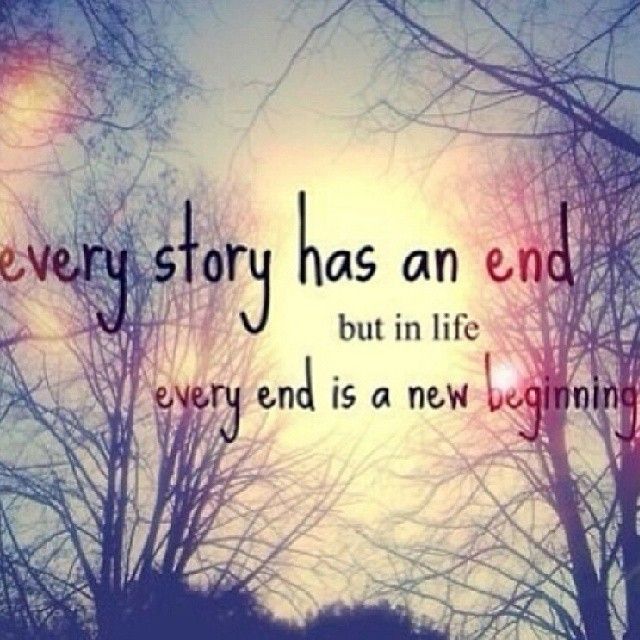
Friday, March 17 2017
March Round Robin topic is: Are you ever emotionally drained by writing certain scenes, and how real are your characters to you?
 As a reader, I remember one scene, actually a chapter, that I was listening to on audio in the car on my way to a meeting. It was an action/adventure thriller – a genre filled with angst and tension. When I got to my destination, I turned off the car and headed into the building with this intense feeling that I was late and needed to hurry. But when I got there, I was actually early. At first having no idea why I was feeling this intense need to get there. Only as the adrenalin rush wore off, did I realize I’d been so drawn into the immediacy of the story that I was feeling all the same anxious pressure the characters were feeling in a life or death situation. All I could think was WOW! That was great writing. As a reader, I remember one scene, actually a chapter, that I was listening to on audio in the car on my way to a meeting. It was an action/adventure thriller – a genre filled with angst and tension. When I got to my destination, I turned off the car and headed into the building with this intense feeling that I was late and needed to hurry. But when I got there, I was actually early. At first having no idea why I was feeling this intense need to get there. Only as the adrenalin rush wore off, did I realize I’d been so drawn into the immediacy of the story that I was feeling all the same anxious pressure the characters were feeling in a life or death situation. All I could think was WOW! That was great writing.
As an author, I can only hope I can bring my readers to that kind of a precipice when they’re reading my books. I don’t write Action/Adventure, though, so my scenes aren’t going to leave my readers coming down from an adrenalin rush. As a pantser, I tend to write character driven stories, and since most of them are romance, there have been scenes that leave me drained emotionally. Some romance scenes: falling in love, making love, happy ever afters etc aren’t usually emotionally draining so much as leaving an emotional high. Either you have a wonderful world view that grows out of a satisfying romantic connection or you’re hunting for your mate and hoping you can get them as aroused as you are. But the scenes in romance that tend to leave me drained are the “Black Moments.” That crisis moment in the story when everything seems lost and your characters, and you, the author are going to get your heart broken.
.
 In the most recent release in my Cameron’s of Tide’s Way series, my hero finds out something he feels the heroine should have told him herself, years ago, and he’s hurt and disappointed. What he started out as a conversation to find out what happened and why she hadn’t told him turns into an angry scene as his anger overcomes the hurt and any chance the heroine has to make her case. When she finally storms off, it seems like all is lost. When I finished writing that scene, I was emotionally drained and just as hurt as my hero, AND just as crushed as my heroine. I had to collect my dog and go for a walk on the beach while my emotions ebbed and the physical reactions calmed. I was surprised at the time because I hadn’t felt that bad when they said good bye all those years ago, even knowing what was going to happen to them. So, YES, there are scenes that leave me totally, emotionally drained. In the most recent release in my Cameron’s of Tide’s Way series, my hero finds out something he feels the heroine should have told him herself, years ago, and he’s hurt and disappointed. What he started out as a conversation to find out what happened and why she hadn’t told him turns into an angry scene as his anger overcomes the hurt and any chance the heroine has to make her case. When she finally storms off, it seems like all is lost. When I finished writing that scene, I was emotionally drained and just as hurt as my hero, AND just as crushed as my heroine. I had to collect my dog and go for a walk on the beach while my emotions ebbed and the physical reactions calmed. I was surprised at the time because I hadn’t felt that bad when they said good bye all those years ago, even knowing what was going to happen to them. So, YES, there are scenes that leave me totally, emotionally drained.
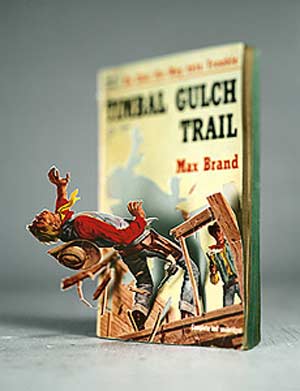 My characters are very real to me. My stories are character driven so I spend a lot of time before the book even starts creating my characters, writing their backstory, learning who they are, what they like and what they hate, their favorite music and hobbies, their strengths and their faults. I know that motivates them and I know the dark things they try to hide from the world. I know what makes them vulnerable. SO, when the story finally gets underway, most of the time I never have to ask what they’d do next because I already know how they are going to react. But sometimes they surprise me. I created them and yet suddenly I find myself typing something about them I had no idea of before. Sometimes I have a plan for their story arc, and they plant their feet and defy me. They have other plans. I usually go with the flow and let them have their way. Other times I let them have their say and then we return to the plot I had in mind. My characters are very real to me. My stories are character driven so I spend a lot of time before the book even starts creating my characters, writing their backstory, learning who they are, what they like and what they hate, their favorite music and hobbies, their strengths and their faults. I know that motivates them and I know the dark things they try to hide from the world. I know what makes them vulnerable. SO, when the story finally gets underway, most of the time I never have to ask what they’d do next because I already know how they are going to react. But sometimes they surprise me. I created them and yet suddenly I find myself typing something about them I had no idea of before. Sometimes I have a plan for their story arc, and they plant their feet and defy me. They have other plans. I usually go with the flow and let them have their way. Other times I let them have their say and then we return to the plot I had in mind.
My characters are so real, I find myself sharing what’s happening to them with others, mostly other writers, but occasionally a friend or family member or even a reader. I talk about them as if they were real and the problems they are facing are real. Just like I would talk about something that happened to me, or to someone I know. My writer friends understand. My other acquaintances look at me as if I’m losing it.
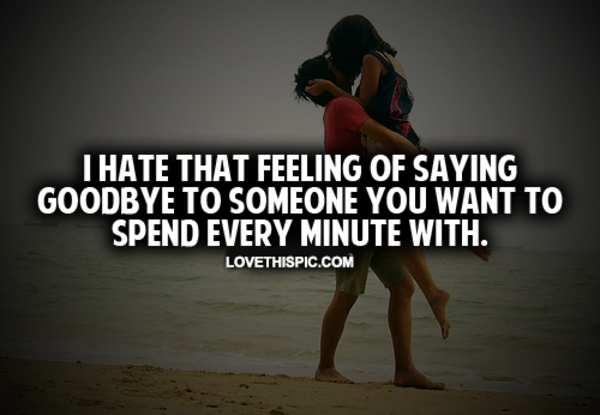 But the time I know without a doubt that my characters have become real to me is when I write The End. Even on the first draft when I still have lots of editing and revising to do. I have this lost feeling like my best friend just up and moved to the other side of the country. I might email them or call them from time to time, but it will never be the same as it was while I was writing their story and they were living in my head. I know the story now, I know how it ends and they are leaving me. I miss them terribly until I begin the next book and find new friends to invest so much emotional capital in. I have a new sweatshirt that boasts in large letters across the chest: I am an author. That means I am creative, cool, passionate . . . and a little crazy. And maybe having people I’ve made up out of thin air become that real to me is a little crazy, but if it is, then I’m perfectly happy with crazy. But the time I know without a doubt that my characters have become real to me is when I write The End. Even on the first draft when I still have lots of editing and revising to do. I have this lost feeling like my best friend just up and moved to the other side of the country. I might email them or call them from time to time, but it will never be the same as it was while I was writing their story and they were living in my head. I know the story now, I know how it ends and they are leaving me. I miss them terribly until I begin the next book and find new friends to invest so much emotional capital in. I have a new sweatshirt that boasts in large letters across the chest: I am an author. That means I am creative, cool, passionate . . . and a little crazy. And maybe having people I’ve made up out of thin air become that real to me is a little crazy, but if it is, then I’m perfectly happy with crazy.
Want to know what other authors think?
Victoria Chatham
 Marci Baun Marci Baun
Margaret Fieland
Judith Copek
A.J. Maguire
Connie Vines
Rachael Kosinski
Dr. Bob Rich
Heather Haven
Beverley Bateman
Kay Sisk
Diane Bator
Helena Fairfax
Rhobin Courtright
Tuesday, March 14 2017
 I belong to a large and beautiful Catholic church, but during Lent I am always drawn to participating in the Way of the Cross services at a tiny little church a half hour west of me. They hold it in the garden beside the church (weather permitting which it nearly always does) at noon. People of all ages take part, right down to toddlers more interested in exploring and school age children who take turns saying the prayers. Instead of rushing from one station to another mumbling the words so fast one can’t really even follow them, never mind contemplate the meaning, the pace is slow with time and space to think and reflect. As I was leaving the lovely service this past Friday, I got to remembering the most vividly intense Way of the Cross I ever joined. I belong to a large and beautiful Catholic church, but during Lent I am always drawn to participating in the Way of the Cross services at a tiny little church a half hour west of me. They hold it in the garden beside the church (weather permitting which it nearly always does) at noon. People of all ages take part, right down to toddlers more interested in exploring and school age children who take turns saying the prayers. Instead of rushing from one station to another mumbling the words so fast one can’t really even follow them, never mind contemplate the meaning, the pace is slow with time and space to think and reflect. As I was leaving the lovely service this past Friday, I got to remembering the most vividly intense Way of the Cross I ever joined.
.
 I’d been in Tonga for more than a year and had experienced the spiritual depth of prayer both in and out of the church. But the Way of the Cross was special. Dressed in mourning clothes, which is black garb and traditional woven mats wrapped about the waist, I headed downtown to St Joseph’s Cathedral in Neiafu. There the procession winds from the church steps, around the streets of the small town, stopping fourteen times to offer prayer. A young man dressed as Christ carries a very large and heavy cross and it is obvious early on that the work is hard. He is sweating and his steps grow more weary after each stop, until we finally return to the steps of the church where he is tied to that cross and the cross lifted up. There were no nails, of course, but a tiny chock beneath his heels. As the prayers went on, his limbs began to tremble and his face was contorted with the effort to remain where he was. Looking at that young, earnest face, it was so easy to picture Christ upon his cross, trembling with fatigue, thirsting and finally calling out for his Father do to His will. For the rest of my life, that young face will color my interpretation of the Way of the Cross, and encourage me when I balk at carrying my own cross. I’d been in Tonga for more than a year and had experienced the spiritual depth of prayer both in and out of the church. But the Way of the Cross was special. Dressed in mourning clothes, which is black garb and traditional woven mats wrapped about the waist, I headed downtown to St Joseph’s Cathedral in Neiafu. There the procession winds from the church steps, around the streets of the small town, stopping fourteen times to offer prayer. A young man dressed as Christ carries a very large and heavy cross and it is obvious early on that the work is hard. He is sweating and his steps grow more weary after each stop, until we finally return to the steps of the church where he is tied to that cross and the cross lifted up. There were no nails, of course, but a tiny chock beneath his heels. As the prayers went on, his limbs began to tremble and his face was contorted with the effort to remain where he was. Looking at that young, earnest face, it was so easy to picture Christ upon his cross, trembling with fatigue, thirsting and finally calling out for his Father do to His will. For the rest of my life, that young face will color my interpretation of the Way of the Cross, and encourage me when I balk at carrying my own cross.
  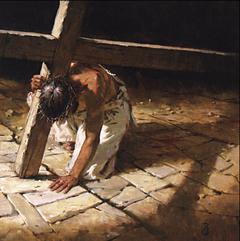
|